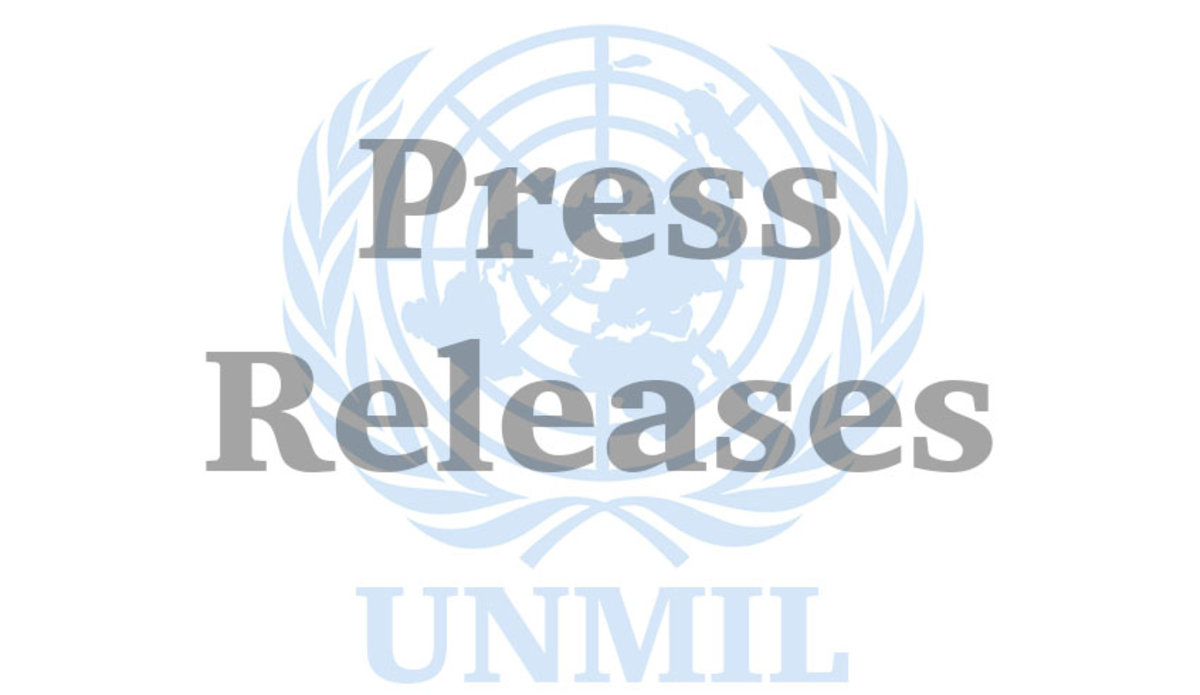Ahead of her departure from Liberia on 3 July, the Special Representative of the Secretary-General (SRSG) and Coordinator of United Nations Operations in Liberia, Karin Landgren, reflected on “Today’s Choices, Tomorrow’s Liberia,” during a farewell address at Monrovia’s City Hall today.
Guests in attendance included Government officials, diplomats and other members of the international community, representatives of national institutions and civil society, UN counterparts and members of the media.
“Liberia and its people have achieved a great deal, especially in the past year,” said Landgren, reflecting on her three-year tenure as the SRSG for Liberia. “Liberia overcame Ebola (always with the knowledge that it could come back, as it has), reached agreement to conduct Senate elections safely during that epidemic, and managed the related political, legal, and logistics challenges. These successes crown 12 years of peace.”
“Today’s Liberia is unrecognizable from the ruins in which it lay in 2003. Still, Liberians from all backgrounds, men and women, elders and young people acknowledge lingering issues that can drive, and revive, conflict - no matter how capable the national security sector is,” she said in the speech that covered existing cleavages in Liberian society, accountability and transparency, and the choices Liberians must make today to ensure resources are focused on building a better future.
The UN envoy noted that while Liberia’s privileged elite has broadened considerably, the resentment of perceived exclusion remains and is a core reason why the country remains fragile. “Social inclusion is essential for lasting peace,” she said, adding examples of how Ebola led to “Liberia’s greatest success” when people got together to beat back the disease.
Six years after the release of the Truth and Reconciliation Commission Report, Landgren highlighted that its conclusions “should not be seen as limiting in any way the human desire for reconciliation and truth.”
Referring to Liberia’s model of development, Landgren cited a current World Bank study on concessions which finds that a sharp decline in commodity prices exacerbated by the Ebola crisis is pushing the country’s natural resource economy to a critical juncture in which the concessions are sites of social tension. “It doesn’t have to be this way,” she said. “Central to the World Bank’s research on improving the concessions model is the need for a sustained effort to increase engagement with local communities, enable them to see benefits, and empower them,” Landgren said, adding that in her farewell visits to counties she also heard strong community demand for better education.
The SRSG concluded her remarks by citing a high-level panel on Peace Operations report that found that “ultimately, political primacy rests with national actors,” while the main effort of any peace operation must be to focus international attention and resources on supporting national actors to make courageous choices required to restore peace. “Important decisions for strengthening Liberia’s common good and shared identity remain pending…but hiding in plain sight,” she said. “With more attention, engagement and support to communities, I have every reason to believe that the Liberian project will prosper.”
“I encourage Liberia to do no less than to make the sun shine on integrity and accountability, on that shared positive national identity, on the model of development that leaves no one behind – to engage fully with its own past and thereby determine its bright future,” the SRSG said.
For further information, please contact:
 UN
UN United Nations Peacekeeping
United Nations Peacekeeping





